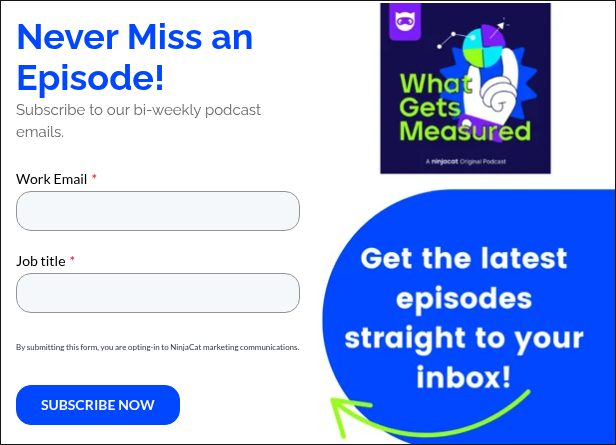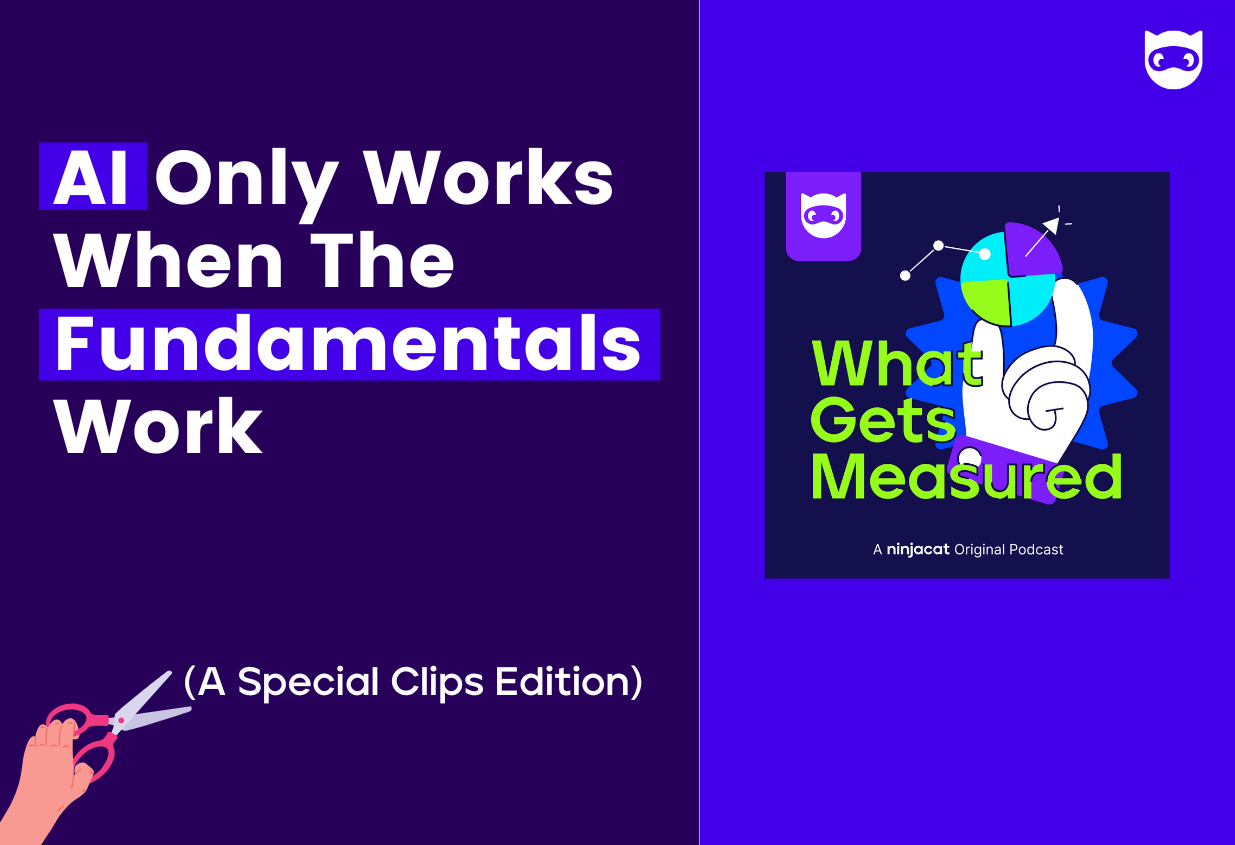Marketing Data Literacy
.png)
The Guest
In a world where marketing jargon and buzzwords dominate the conversation, Dale Harrison—a seasoned commercial strategy and marketing effectiveness consultant—cuts through the noise. Known for dropping "truth bombs" in LinkedIn threads, Dale brings a no-nonsense perspective to data literacy and the importance of questioning the numbers that drive marketing decisions. In this interview, Dale shares insights into how marketers can develop a more rigorous approach to understanding data and what it takes to be truly effective.
From Physics to Marketing: A Unique Journey
Dale's path to marketing is anything but conventional. Beginning his career as an experimental physicist, he pivoted through roles in technology, finance, and even biotech, before landing in marketing. This diverse background equipped him with strong mathematical skills and a structured, analytical way of thinking.
"Marketing is not about fancy techniques and tactics. It’s about bringing into existence a different future state of the world by creating memory traces in the minds of future buyers."
The Art and Science of Marketing: Why Data Literacy Matters
Dale argues that many marketers lack the critical thinking necessary to question data, often taking numbers at face value rather than probing their origins or implications.
"In marketing, there’s an excessive respect for numbers," Dale says, "and a lot of people don’t ask, 'Does this make sense?' It’s crucial to understand the difference between a real performance metric and a forecast about something that may or may not happen."
One of Dale’s favorite illustrations of this disconnect is with branded search campaigns. While branded paid search often appears to show high ROI, he points out that it’s unlikely these clicks represent new customers who wouldn’t have otherwise bought.
"Imagine hiring someone to hold a sign that says 'Shop at Whole Foods' and have them stand right outside the store entrance," muses Dale. "The ROI might look high, but are you actually changing behavior?"
Correlation Isn’t Causation
A major theme in Dale’s approach is distinguishing between correlation and causation—a concept he feels is often lost in marketing. Just because two numbers move in the same direction doesn’t mean one caused the other. He’s particularly skeptical of pipeline metrics like pipeline ROI or CAC to LTV ratios. These, he argues, are not true performance indicators because they rely heavily on future predictions, often grounded in shaky assumptions.
"You can’t use guesses about the future to explain the past,” explains Dale. “Trying to rationalize today’s outcomes with tomorrow’s projections just doesn’t hold up."
Efficiency vs. Effectiveness: A Fundamental Distinction
According to Dale, one of the biggest pitfalls for marketers is focusing too heavily on efficiency metrics (cost per lead, click-through rate, etc.) at the expense of true effectiveness. "You can have a high ROI but still be highly ineffective," he cautions.
For Dale, marketing effectiveness is about "changing the future state of the world" by influencing customers who wouldn’t otherwise engage with the brand. He explains in another allegory: "Handing out coupons to people who already have a reservation at your restaurant will show high return on efficiency metrics, but it’s not effective marketing."
The Power of Critical Thinking Over Tools
Dale believes that the problem with data-driven marketing isn’t about not having the right tools; it’s about cultivating the right mindset. "Where did this number come from? Is it a guess, or something we measured?" he says, underscoring the importance of questioning the source and validity of every metric. For him, data literacy starts with logical thinking, not advanced math skills.
By fostering a skeptical, thoughtful approach to data, marketers can better understand the true impact of their efforts. Dale leaves us with this advice: "Think about the implications of the numbers being thrown at you. Don’t get confused by the tools or metrics; instead, ask, 'Does this make sense?'"
Dale’s insights are a powerful reminder that effective marketing is about more than just high click-through rates and pipeline ROI. It's about strategic thinking, critical questioning, and focusing on long-term impact. For marketers overwhelmed by numbers, Dale’s advice is clear: challenge the data, embrace a healthy skepticism, and never stop asking, "What does this really mean?"
The Links
Dale's Marketing Measurement Newsletter
Dale on LinkedIn
LISTEN TO THE FULL SHOW -> Stay tuned, stay curious and subscribe to What Gets Measured on Apple Podcasts, Spotify, YouTube or add it as a Favorite on your podcast player of choice.





.png)
